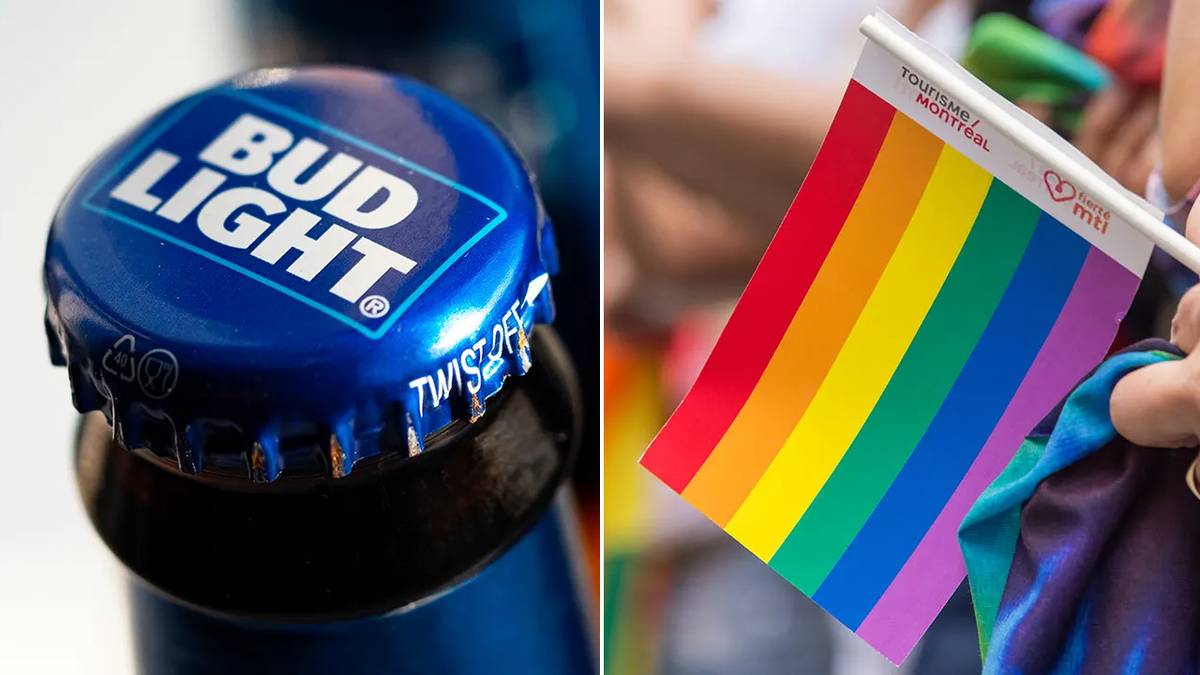Americans continue to boycott Bud Light through Fourth of July
OutKick host Tomi Lahren joined 'Fox & Friends First' to discuss her take on the lingering fallout over the controversy and Democratic California Gov. Gavin Newsom visiting red states ahead of the 2024 election.
A New York Times columnist warned that both the right and left overestimate the power of "woke capitalism," as Bud Light sales continue to drop in the wake of its partnership with transgender social media influencer Dylan Mulvaney.
"I have bad news for combatants on both sides of this war. For those on the left who take comfort in seeing big companies take bold stands on issues they care about, I’m here to tell you that those companies care much more about their bottom line than your beloved issue," opinion columnist Lydia Polgreen wrote Wednesday.
But conservatives also put too much stock in the impact of their boycotts against "woke" companies like Anheuser-Busch, Polgreen argued. While the Bud Light parent company lost billions in market value and continues to see its sales plummet, the columnist said conservatives had won a "Pyrrhic victory" because liberal messaging abounds in the beer industry.
NEW BUD LIGHT AD RIDICULED UP AND DOWN SOCIAL MEDIA

Bud Light serves as a sponsor for the 2023 Toronto Pride parade where naked attendees rode bikes and stood near groups of children. (Igor Golovniov/SOPA Images/LightRocket/ iStock)
"And those on the right who feel that the wind is at their back with successful boycotts of ‘woke’ brands are likely to be disappointed for similar reasons. Even this year’s big success — a boycott of Bud Light after it worked with a transgender influencer as part of a broader social media campaign that apparently caused the stock of the brewing giant Anheuser-Busch to drop — was a Pyrrhic victory: It is all but impossible to find a beer company that doesn’t participate in celebrating Pride, thereby doing exactly what the right accuses them of: pushing a liberal agenda antithetical to conservative mores," Polgreen wrote.
Companies are thinking about their finances when they use Pride marketing and can't "afford to alienate" the LGBTQ community" by kowtowing to critics, she added.
"It turns out queer consumers and their allies are important to companies’ bottom line, and — especially in a tight labor market — companies can hardly afford to alienate queer workers and their families and supporters," the columnist said. "Even after getting dinged by conservative consumers and gay rights activists, Bud Light pledged to keep supporting queer businesses."
GLASS BOTTLING PLANTS FORCED TO SHUT DOWN, LEAVING 600 EMPLOYEES JOBLESS AMID BUD LIGHT CONTROVERSY

Bud Light on sale for $19.99 with a $15 rebate offer at a store in Nashua, New Hampshire, on May 24, 2023. (Alexa Moutevelis/Fox News Digital)
Bud Light sales are showing "no signs of rebounding," a MoneyWatch report said last week. Sales are down nearly 30% from where they were last June.
The beer brand recently launched a series of ads in attempts to win back customers but they were heavily mocked on social media as "desperate."
CLICK HERE TO GET THE FOX NEWS APP
Yet the Times columnist continued to downplay the power of corporations' political marketing, saying they were ultimately participating in cultural trends rather than creating them.
Polgreen pointed to how Spotify kept podcast host Joe Rogan on its music streaming platform because of his popularity, despite an attempt to "cancel" him by liberals, and Nike rebounded after conservative backlash from its partnership with quarterback and activist Colin Kaepernick.
Polgreen suggested factors like a product's availability are ultimately more important to consumers than a company's political branding. She said political elites on the right were using the "paper tiger" of inclusion and diversity to wage a culture war against the left.
"But woke capitalism is a paper tiger. Companies embrace identity and cultural inclusion as a way to expand their market share to new communities while simultaneously obscuring their raw political power and the ruthless underpinning realities of shareholder capitalism," Polgreen wrote. "Elites on the right, meanwhile, know very well that it is a paper tiger but are more than happy to play along with a shuck and jive that allows them to wield "woke" as a cudgel against the left — and for some voters, it does the vital job of stoking resentment."
The columnist advised that both sides should remember that corporations care more about making money than catering to a consumer's political views.
"Corporations are not your friends. They do not represent your interests. Yield to their power at your own peril," she concluded.
